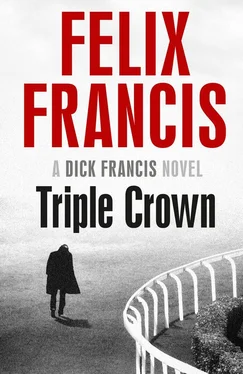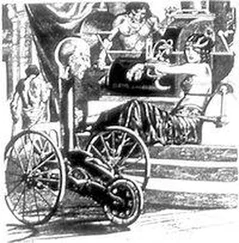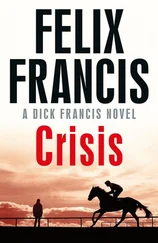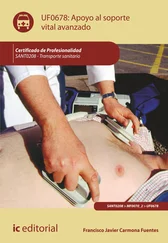No police.
I would fight my own battles, and I would choose when and where.
I had a restless night.
When my phone alarm went off at four, I’d already been awake for ages, and I was sore.
Even the slightest of movements sent shock waves down into my groin.
Gritting my teeth, I swung my legs over the side of the bed and lowered myself gently to the floor.
I dug into my plastic wash bag for a couple of painkillers and hoped they would work quickly. Next I walked gingerly along the corridor to the bathroom, feeling sick.
Using the cracked and tarnished mirror above the sink, I examined myself again as best I could. There was a slight darkening of the skin due to bruising but no major swelling and my pee was still clear of any blood.
I decided that I’d live.
In an ideal world I would have lain still on my bed for a day or two to allow the bruising to come out and for recovery to start. But I wasn’t currently living in an ideal world. I had to get to work, not least because I wasn’t prepared to give Diego the satisfaction of seeing that I was off sick.
As it was, I managed to get myself dressed and over to the barn by half past four. Not for the first time, I was glad that Raworth’s grooms didn’t have to ride the horses. That would have been a step too far for the throbbing orbs between my legs.
I readied my four horses for exercise and spent the entire morning moving slowly round with my knees slightly spread apart. Two more painkillers helped and, gradually, things started to return to normal.
I came upon Diego as we were both collecting feed from the store. He said nothing. Instead he repeated his finger-across-the-throat gesture. I just smiled at him but that made him angry and he tipped the feed bowl I was carrying out of my hands and into the dirt.
I sighed.
I could do without this difficulty. It wasn’t that I’d even made a hit on Maria; it was all the other way around.
I did my best to avoid her but she spent most of the morning walking hot horses round and round the shedrow, passing by the stalls where I was working every couple of minutes.
Finally, after I had ignored her for almost two hours, she came in.
‘What wrong with you today?’ she demanded, standing full square in the middle of Paddleboat’s stall.
‘Nothing,’ I said, not turning round and continuing to lay the straw bed for the horse.
‘I watching you,’ she said. ‘You move like Chuck.’
Chuck was the yard boy, eighty years old if he was a day, permanently shaking, and only kept moderately upright by his broom. The way I felt right now, I wouldn’t want to pick a fight with him — he’d have won easily.
‘I caught myself on the bedpost,’ I said, still not turning to face her. ‘I’ll be fine in a couple of days.’
‘You want me apply ice?’ she asked with a laugh.
‘No,’ I said. ‘I do not.’
But I couldn’t help smiling.
I spent the afternoon lying on my bed, alone, for more thinking.
I needed to move things on and, in order to do that, I needed to have a look in Raworth’s drug store, and also in the barn office.
But that was easier said than done.
Even though most of the grooms were off duty from about midday until four in the afternoon, the barn was never totally free of humans.
When he wasn’t actively engaged in looking after Fire Point, Keith spent most of the afternoons in the office, often watching the live racing on a television connected to the racetrack system. Every hour or so he would do a circuit of the barn, looking briefly into each stall to ensure that the equine resident wasn’t stuck down or suffering from colic.
And then there were always the day’s runners going back and forth from the track, led by one of the grooms or a hot-walker.
The barn was never deserted.
Even at night, Keith slept in a bedroom adjoining the office, with a connecting door between the two. And, for added security, the door contained a small glass viewing panel.
I considered my options.
If I’d had my top-of-the-range night-vision goggles readily available, I might have gone in at midnight, but how would I have explained them away to whoever had been through my bag on my first day?
The only possibility was to do it during the day, maybe when Keith was having a meal at the track kitchen.
And what exactly was I going to look for anyway?
I’d already witnessed clenbuterol in use on Paddleboat, but it wasn’t against the rules provided the horse didn’t race until the drug had cleared its system. That alone would not be sufficient for FACSA to mount a raid. I would have to find something else.
The drugs for the horses were kept in a large, walk-in cupboard at one end of the feed store, and it was always kept locked except when Charlie Hern was there issuing items from it. The feed store was also locked most of the time. The keys were on a ring in Charlie’s pocket.
Suddenly even the idea of getting in seemed hopeless, never mind actually finding something there that I shouldn’t.
The office was slightly better.
As a general rule the office door was left open during the day when Keith or Charlie Hern were in the barn but I’d seen Keith pull it locked when he went to lunch.
All three of the locks, on the doors to the office, feed store and the drug cupboard, were of the pin-tumbler cylinder variety, like those found on many front doors, where the door would lock automatically when pulled shut.
I’d been taught how to pick such a lock by one of my corporals in the army. He had learned it from his father, who had been nicknamed Harry Houdini by the East London criminal underworld on account of him escaping twice from prison by picking all the locks. The son had then perfected the technique and could reportedly open anything, including safes. During the many hours of boredom of an Afghan tour of duty, he had wiled away the time by teaching the art to the rest of his platoon, me included.
All you needed were two simple pieces of kit — a torsion wrench, which was a small L-shaped metal bar inserted in the keyhole to apply tension to the cylinder, and a thin piece of metal called a rake that was moved back and forth inside the key slot to lift the pins. As always, I had both in my wash kit.
It was not the process of getting in that concerned me; it was doing it, and getting out again, without being seen.
I went over to the barn half an hour early for evening stables with the two lock picks in my left sock. But the office door was already open and Keith was in there, tipping an office chair back on two legs, with his feet up on the desk. He was watching the racing on the TV.
I went in.
‘Hello, Paddy,’ Keith said, taking his eyes from the screen for a mere split-second. ‘We have a runner in this. Teetotal Tiger. Gate Two.’
I watched as the starting gates flew open and the horses emerged in a line, Teetotal Tiger easy to spot as his jockey was wearing a white cap.
Belmont Park boasted the longest Thoroughbred track in North American racing with a one-and-a-half-mile dirt oval, but this race was only half that distance, at six furlongs. Hence the start was midway down the back stretch.
As on all US racetracks, the horses ran anticlockwise round the home turn. Keith took his feet off the desk and leaned forward, concentrating on the screen.
The white cap was clearly visible in third or fourth place out of the eight runners, keeping close to the rail for the shortest trip. As they straightened up for the run to the line, the leading pair drifted slightly to their right, allowing Teetotal Tiger room to sneak through on the inside and win by half a length.
Keith was now on his feet cheering. I was cheering too and suddenly Keith turned and hugged me in his excitement.
Читать дальше












